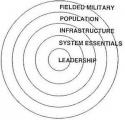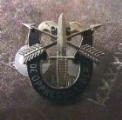On present trends, it seems probable that EBO will remain at best a worthy
aspiration. The pluralistic nature of Western democracies, including that of
Australia, limits the coherence and unity of an effects-based approach to
strategy. Moreover, Clausewitz’s trinity of chance, uncertainty and friction
continues to characterise war and will make anticipation of even the firstorder
consequences of military action highly conjectural. Interaction between
personalities and events means that any given military action may have
totally unpredictable effects on different actors. In addition, a systems
approach to warfare does not guarantee that second- and third-order
consequences of actions can be predicted, let alone managed. Clausewitz
was right when he argued that the best outcome that a military force could
achieve was to disarm an enemy. The use of force will continue to be an
imperfect instrument of persuasion, while coercion is likely to be unpredictable in its moral impact on an enemy. Uniformed professionals
should strive for the achievement of positive effects from their military
actions while working hard to minimise negative outcomes. Developing a
capacity to be more discriminating in the use of armed force is perhaps the
closest that Australian military practitioners can hope to come to the ideal of
executing effects-based operations.













 strategic tree (Beinhocker) - he should have made his point but stimulated further initiatives on this. To give another example - SOD's post-modernist roots are a bit to sophist for my taste, but the way Naveh and his disciples apply it _I_ certainly find worth exploring further (as part of a bushy doctrinal tree).
strategic tree (Beinhocker) - he should have made his point but stimulated further initiatives on this. To give another example - SOD's post-modernist roots are a bit to sophist for my taste, but the way Naveh and his disciples apply it _I_ certainly find worth exploring further (as part of a bushy doctrinal tree).
 "A Sherman can give you a very nice... edge."- Oddball,
"A Sherman can give you a very nice... edge."- Oddball, 


Bookmarks